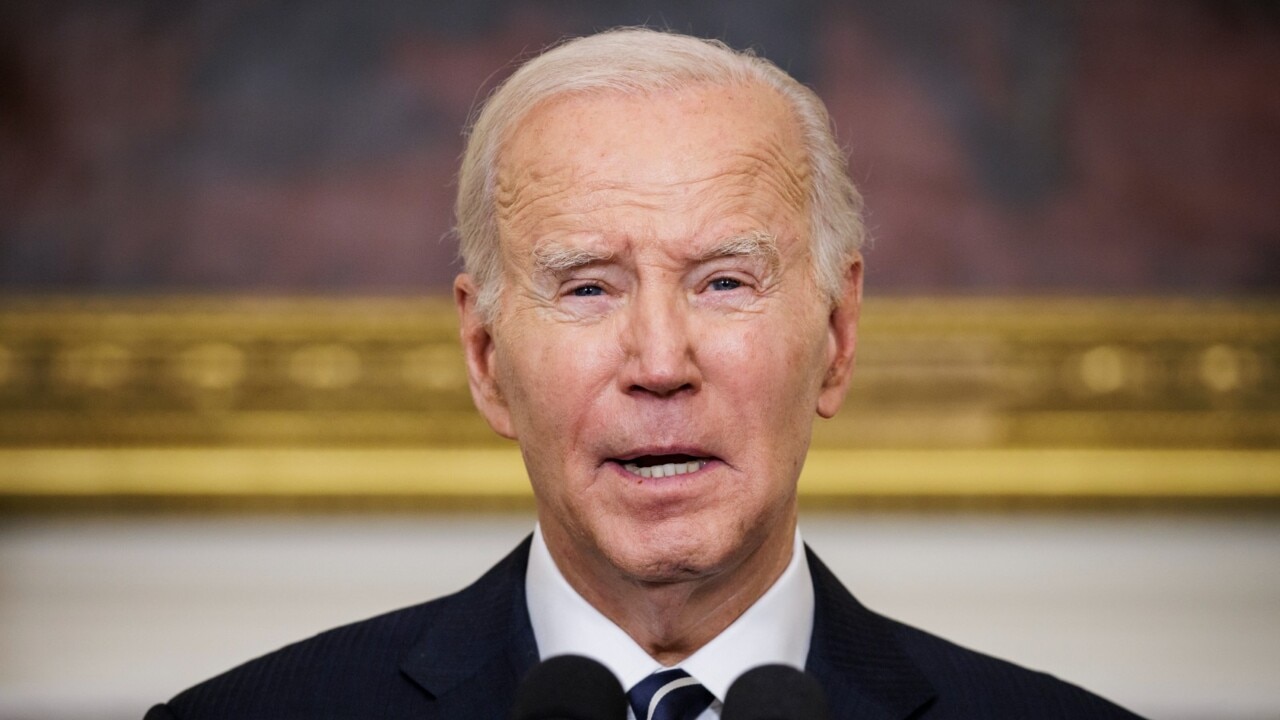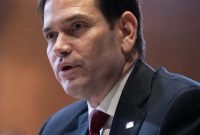Biden’s Warning on the Emerging Oligarchy in the US: Biden Warns Of Dangers Of Oligarchy Taking Shape In US

President Biden’s recent pronouncements regarding the growing threat of oligarchy in the United States have sparked considerable debate. His warnings highlight a concern about concentrated power and influence wielded by a small elite, potentially undermining democratic principles and institutions. This analysis delves into the context of Biden’s statements, explores the definition of oligarchy in the American context, examines potential sources of oligarchic influence, and proposes strategies to counteract this trend.
Biden’s Statement: Context and Interpretation
Biden’s warnings about an emerging oligarchy haven’t been presented as a single, definitive speech, but rather as a series of comments and remarks woven into broader discussions on economic inequality and political polarization. He often cites the increasing concentration of wealth and influence in the hands of a few as evidence. Specific examples he might point to include the influence of large corporations on political campaigns through lobbying and campaign contributions, as well as the impact of Supreme Court decisions like *Citizens United* which loosened campaign finance regulations.
Different interpretations exist depending on political viewpoints. Conservatives might argue that Biden’s claims are hyperbole, designed to justify increased government regulation and intervention. They might emphasize the role of individual merit and free markets in achieving success, downplaying the systemic factors contributing to wealth concentration. Conversely, progressives might view Biden’s statements as a necessary wake-up call, emphasizing the urgent need for reforms to address systemic inequalities and curb the undue influence of money in politics.
| Interpretation | Source | Supporting Evidence | Potential Implications |
|---|---|---|---|
| Exaggerated rhetoric to justify increased government regulation | Conservative commentators | Claims of economic dynamism and individual opportunity; criticism of government overreach | Increased government control, potential stifling of economic growth |
| Accurate reflection of a growing threat to democracy | Progressive commentators | Data on wealth inequality; influence of lobbying and campaign finance; erosion of democratic norms | Increased social unrest; weakening of democratic institutions; further concentration of power |
| A nuanced issue requiring a balanced approach | Centrist commentators | Acknowledges both economic dynamism and systemic inequalities; advocates for targeted reforms | Targeted reforms addressing wealth inequality and campaign finance; strengthening of democratic institutions |
Defining Oligarchy in the American Context
An oligarchy, in the American context, refers to a system where political power is concentrated in the hands of a small, unelected elite, often driven by economic interests. Key characteristics include disproportionate influence over policy decisions, limited public participation in governance, and a lack of transparency in decision-making processes. This could manifest through powerful lobbying groups shaping legislation, wealthy donors influencing elections, and a revolving door between government and private industry. The impact of an oligarchy contrasts sharply with a true democracy, where power is distributed more evenly among the populace and decision-making is more transparent and accountable. A plutocracy, where the wealthy hold disproportionate power, is a form of oligarchy. A totalitarian regime, while also concentrating power, differs in its complete control over all aspects of society.
- Erosion of democratic institutions
- Increased social and economic inequality
- Reduced public trust in government
- Stagnation of economic mobility
- Policies favoring the wealthy elite
Potential Sources of Oligarchic Influence
Several sources contribute to oligarchic influence in the US. Concentrated wealth provides the resources for lobbying and campaign contributions. Powerful lobbying groups directly influence policy-making through their access to lawmakers and their ability to shape public discourse. Political campaign financing, especially through Super PACs and dark money, allows wealthy individuals and corporations to exert significant influence on election outcomes. These sources are interconnected; concentrated wealth fuels lobbying and campaign finance, creating a feedback loop that reinforces oligarchic power.
For example, a hypothetical scenario could involve a wealthy industrialist funding a Super PAC that supports candidates favorable to deregulation in their industry. These candidates, once elected, might then appoint industry lobbyists to key government positions, further strengthening the industrialist’s influence.
Counteracting the Rise of Oligarchy

Several strategies could mitigate the risk of oligarchy. Campaign finance reform, aiming to reduce the influence of money in politics, is crucial. Strengthening regulations on lobbying and corporate influence could limit their ability to shape policy decisions. Promoting media literacy and critical thinking skills among the public could help counter misinformation campaigns and increase public awareness of oligarchic influence. Increased transparency in government operations could help reduce corruption and increase accountability.
A visual representation could depict a network diagram. Nodes represent the strategies (campaign finance reform, lobbying regulation, media literacy, etc.). Edges connect the nodes, showing the interplay between the strategies and their potential outcomes (reduced political influence of money, increased public engagement, stronger democratic institutions, etc.). The strength of the edges could indicate the potential effectiveness of the interaction between strategies. For instance, a strong connection between campaign finance reform and reduced political influence of money would be represented by a thick edge.
Public Perception and Response, Biden warns of dangers of oligarchy taking shape in US
Public perception of the threat of oligarchy is varied. Some are deeply concerned, while others are skeptical or unconcerned. Media coverage has played a significant role in shaping public opinion, with different outlets presenting varying perspectives. Social media, while potentially amplifying public discourse, can also be a breeding ground for misinformation and echo chambers. Higher levels of public awareness and engagement are likely to increase the effectiveness of countermeasures against the rise of oligarchy, while apathy or misinformation could hinder efforts to address this challenge.


